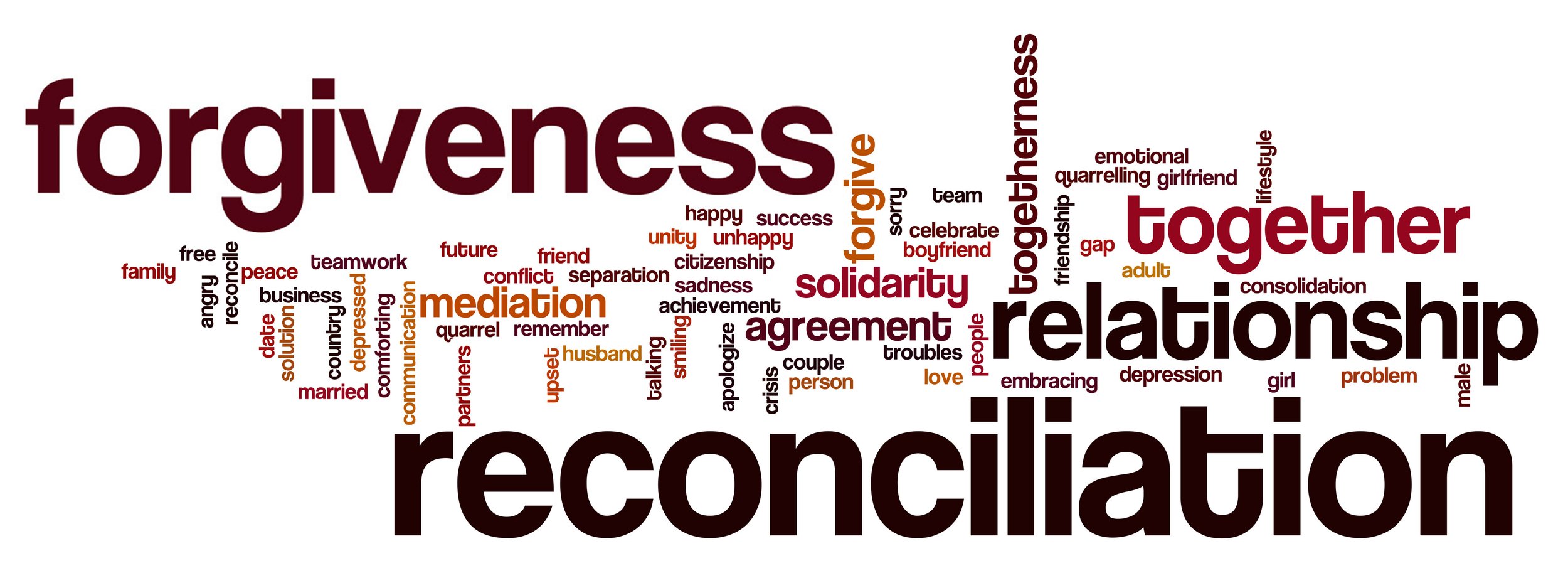Forgiveness & Reconciliation
“How many times do I need to forgive my brother?” Peter asked. Wouldn’t it be simpler if he’d been told, “If someone sins against you three times, you’re off the hook; it’s totally reasonable to withhold your forgiveness after that.” I’m thankful “reasonable” is not the standard when it comes to forgiveness though – I’d be maxed out on forgiveness, whether it was 3, 7, 77, or 70x7 forgiveness-es we were allotted!
As Believers, we’re called to forgive unconditionally (without counting how many times, actually), because God has forgiven us. But what does that look like practically? If I keep feeling sad when I think about the hurt someone caused me, have I really forgiven them? Am I withholding forgiveness if I put a boundary in place between the offender and myself? Do I need to be reconciled to show forgiveness? What if I don’t trust my brother or sister anymore? What if I am the offender, and I’m chafing at the boundary a brother or sister has put in place?
Valeo Executive Director Curtis saw the need to help cross-cultural workers unpack the answers to these questions. The result was The Other Side of Wounding, a tool he developed for counselors and member care personnel to walk through this process with global workers.
Cross-cultural workers are a conscientious bunch; Curtis points out that you need an above-average sense of burden for those who don’t know the Gospel to move across the world. This represents a beautiful openness to the work of the Holy Spirit, but it may make us vulnerable to false or misplaced guilt, too. One goal of the tool is for people to separate feelings of hurt and betrayal from unforgiveness. “It is extremely important,” Curtis writes, “that we not interpret ongoing feelings of hurt and betrayal as signs of lack of forgiveness, or sins that need repentance.” The Psalms give us a pattern for remembering betrayal and lamenting what we’ve lost without moving into two states-of-heart that are sinful: bitterness and resentment.
Another goal of The Other Side of Wounding tool is to unlink unconditional forgiveness from trust and reconciliation. Trust is a conditional dynamic, Curtis emphasizes, and reconciliation occurs on a continuum. Curtis observes that Paul had conflict with Peter, with Barnabas…with a lot of people! Paul may have reconciled with Peter, Barnabas, and Mark, but they still went their separate ways; maybe part of the way they were able to continue living at peace with each other was by not living near each other.
Reconciliation depends on the desires and input of both parties. “As far as it depends on you, live at peace with one another…” Sometimes you can reconcile, and sometimes you can’t – the requirement is to go as far as it depends on you. This can be comforting for us when we’re the offender, too. Sometimes we work with cross-cultural workers who admit, acknowledge, and repent of having offended someone, but they can’t force the other party to reconcile with them. When the offender has gone as far as it depends on them, they can be at peace.
Reconciliation also depends on the trustworthiness of the offender. Trust, again, is treated in scripture as conditional. Trustworthiness is related to a person’s character. “I think there are people that are trustworthy in character, who we can disagree with, or even be offended by,” Curtis says, “but the way that impacts us is different.” Reconciliation with a person of godly character may be good and healthy, but if we discern that an offender fundamentally lacks character, or is malicious, conniving, or deceptive, we are right to be shrewd in our responses.
Perhaps most crucially, we must be shrewd about reconciliation and trust-building when there’s a power differential between two parties. As Believers, we sometimes overlook the fact that conflict between an adult and child, employer and employee, minister and layperson, includes a power differential. Asking or requiring someone with less power to be reconciled to someone with more power may be unwise; in the case of abuse, it is dangerous. Forgiveness can occur in these situations, but the call is to unconditional forgiveness, not to a physical or relational reconciliation.
Are you struggling with feelings of hurt or betrayal? Do you feel stuck in bitterness or grief? Do you need help discerning whether reconciliation is possible, or to what degree you can trust someone again? Ask your member care team to work through The Other Side of Wounding tool with you, or Start Now to work with a Valeo counselor on this process.
Jen, APC, the author of this article, is one of Valeo’s counselors.



